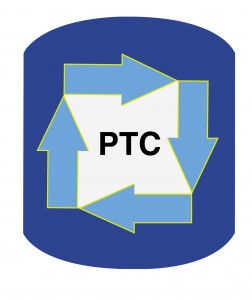A patent was issued this month [Storz, C.; (Huntsman Advanced Materials) US Patent 11,518,846, 06-Dec-2022] that reports an accelerator system for curing thermosets based on polyfunctional isocyanates with mono- or polyfunctional epoxy resins. The challenge is to achieve a rapid cure time at moderate temperatures without building up viscosity too quickly that results in flawed product.
The inventors found a surprising behavior that achieves the desired goals. When they used a classical accelerator such as a complex of boron trichloride-dimethyloctyl amine, curing was too slow. When they used benzyltriethyl ammonium chloride as the accelerator, curing was very fast but the viscosity build was too fast as well. For reasons not explained, when the inventors used an accelerator that was a mixture of these two materials (using the same quantities of each component as in the control runs), the curing and building of viscosity was intermediate between the two and not additive. The desired performance was achieved.
The inventors screened several quat salts as co-accelerators to modify the performance of boron trichloride-dimethyloctyl amine including benzyl triethyl ammonium chloride, tetrabutyl ammonium bromide, tetrabutyl ammonium chloride, tetrabutyl phosphonium chloride and tetrabutyl phosphonium bromide. In all cases, the quat salts without the BCl3-amine complex were too fast but when the quat salts and BCl3-amne complex were used together, viscosity build up and gelation time were slowed down to an acceptable level. It is unclear why the BCl3-amine complex would reduce the activity of the quat salt, but the reality is that these systems work.
About Marc Halpern

Dr. Halpern is founder and president of PTC Organics, Inc., the only company dedicated exclusively to developing low-cost high-performance green chemistry processes for the manufacture of organic chemicals using Phase Transfer Catalysis. Dr. Halpern has innovated PTC breakthroughs for pharmaceuticals, agrochemicals, petrochemicals, monomers, polymers, flavors & fragrances, dyes & pigments and solvents. Dr. Halpern has provided PTC services on-site at more than 260 industrial process R&D departments in 37 countries and has helped chemical companies save > $200 million. Dr. Halpern co-authored five books including the best-selling “Phase-Transfer Catalysis: Fundamentals, Applications and Industrial Perspectives” and has presented the 2-day course “Practical Phase-Transfer Catalysis” at 50 locations in the US, Europe and Asia.
Dr. Halpern founded the journal “Industrial Phase-Transfer Catalysis” and “The PTC Tip of the Month” enjoyed by 2,100 qualified subscribers, now beyond 130 issues. In 2014, Dr. Halpern is celebrating his 30th year in the chemical industry, including serving as a process chemist at Dow Chemical, a supervisor of process chemistry at ICI, Director of R&D at Sybron Chemicals and founder and president of PTC Organics Inc. (15 years) and PTC Communications Inc. (20 years). Dr. Halpern also co-founded PTC Interface Inc. in 1989 and PTC Value Recovery Inc. in 1999. His academic breakthroughs include the PTC pKa Guidelines, the q-value for quat accessibility and he has achieved industrial PTC breakthroughs for a dozen strong base reactions as well as esterifications, transesterifications, epoxidations and chloromethylations plus contributed to more than 100 other industrial PTC process development projects.
Dr. Halpern has dedicated his adult life to his family and to phase-transfer catalysis (in that order!).

